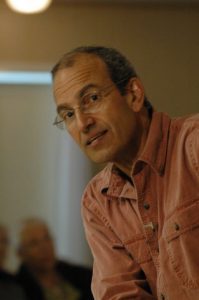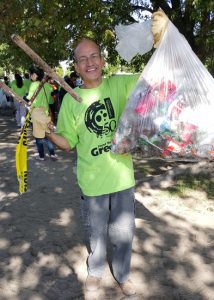
I remember the fear most of all. I was supposed to be the picture of calm. I was supposed to deliver Plato-like wisdom in bite-sized pieces. It was my first actual moment in front of a classroom. Then, I remember the faces. In fact, the make-believe students were professors, the dean of the college and, as I recall, a few graduate students. I stepped from behind the lectern and all my notes, looked up and addressed the class.
“Good morning,” I said, keeping the fear as deep down inside as I possibly could. “And here’s what I’ll be teaching you this semester…”
That was the fall of 1999, when I led my very first class, teaching the art and craft of news reporting. At that time, 17 years ago, when I began teaching journalism and broadcasting to post-graduate students and under-grads alike, Centennial College had just celebrated its 33rd anniversary.
Last Monday, Ontario’s oldest community college, celebrated its 50th anniversary. On Oct. 17, 1966, Centennial College opened its doors to its very first students. I learned from my colleague at the college, Mark Toljagic, on that inaugural day, 50 years ago, there were a total of 514 students enrolled in 16 programs, including business, engineering, social services, childhood education, public relations and journalism. Today Centennial boasts 18,000 full-time students and 20,000 part-timers.
That’s the way I began – as a part-timer – filling in for several other professors on sabbatical. But, as I discovered very quickly in front of those classes in whatever curriculum, I learned as much as I taught.
In those first few years, I experienced what every teacher does, the trepidation of wondering whether a lesson plan I’d shaped for hours would ever come close to accomplishing its aims. My students, many of them graduates in more science and arts programs than I knew existed, always wondered why journalism was done this way or that. While I had practised journalism for the better part of 30 years, I couldn’t always explain why it was done this way or that. So, I either found out why, quickly, or resolved there might just be a better way.
What else have I learned from teaching? I think I’ve learned to be tough, but fair. I’ve tried to listen as often as I speak. I hope I’ve learned to respect who students are, as much as what they are. They’re not sponges. They are parents (some of them single parents). Some are even caregivers to parents. They have experienced loss, economic setback, sadness and the same kind of fear I felt standing in front of them. I recently came across a note I received from a student at the end of one of those first courses in news reporting I gave.
“I can’t believe it was only two years ago that I sat, crying my eyes out, in your office because I thought I might not belong in the program,” she said. “I wanted you to know that your words of encouragement and supply of Kleenex helped carry me through that time.” The young woman found a place in journalism and then corporate communications.
Then there was the lecture hall moment, from which I learned much more than I imparted. During the class, I screened a short news documentary about how a CBC TV journalist was duped by members of the Kosovo Liberation Army into believing a young woman in the KLA was fighting the Serbs to avenge the murder of her sister. It turned out to be well-staged propaganda the KLA used to fuel sympathy for its cause. When I had finished screening the documentary for my 60 students, I posed a question I figured would really challenge them.
“Does anyone have a sense of what happened here?” I asked.
A young student with a surname that suggested he was from the former Yugoslavia, put up his hand. I nodded. “My family was caught in that war,” he said simply. “Propaganda existed on all sides.”
Then, rather than tell him what I thought I knew about the subject, I asked him to tell the class his story. All 60 of us sat spellbound as he related the trauma his family and community had faced in the 1990s. When he finished, the classroom was quieter than it had ever been. His story had touched us, taught us the impact of the war and the propaganda. It was another case of a lesson for the teacher as much as for the learner.

A few weeks ago, to help celebrate Centennial College’s 50th birthday, the college sponsored a “Paint the Town Green” day. We all spent the day cleaning up parks, beaches and roadways around Toronto. We all came back with bags of refuse – as if they were trophies – but again we were beneficiaries as much as benefactors. The sorry state of the city’s natural places taught us, who had abused them, to change our ways. At 50 our teaching institution still had room to learn.